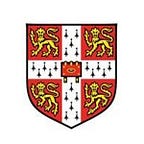The geography student exploring cultures — and encouraging others to apply to Cambridge
Ever since she was 12, Rachel Mumford has been fascinated by South Korea’s distinctive culture and remarkable recent history. Now a third-year geography student, she’s also been contributing to initiatives that reach out to state school pupils.
I went to a big comprehensive in north London. The year before I started, the school was put into special measures and threatened with closure. A new head teacher was appointed and he turned the school around. On his first day, he was in the canteen serving food to the staff and students. He was a total inspiration. Tragically, he died when I was in the sixth form. I just hope he knew how much he’d done for so many young people.
Plenty of people at my school had the ability to apply to Cambridge. But few of them did. That’s one of the reasons I’ve been contributing to access initiatives at my college, Downing. I’m the JCR Access Officer. For the last two years, I’ve helped to look after candidates when they come for their admission interviews. I remember how nervous I felt.
Geography is much broader than people think. If you say you’re doing geography, people usually think about maps and glaciation. In fact, geography overlaps with many other subject areas. In the first year at Cambridge, you take both physical and human geography. One day you’re sitting in a lecture about the break-up of former Yugoslavia and the next you’re listening to an expert talking about melting ice sheets.
I love travelling and fieldwork. School field trips were a big factor in deciding to do a degree in geography. We didn’t go anywhere exotic, but I relished the experience of getting out of the classroom. What I remember most vividly is spending hours squashed into a minibus before standing on a beach in the pouring rain to look at rock formations.
I’ve gone down the human geography route. My final-year dissertation is on South Korean popular culture and the way it has influenced the way South Korea is perceived both domestically in South Korea, and across wider Asia, including in North Korea.
South Korea fascinates me. It began when I saw a South Korean soap opera when I was about 12. It was so well-written and completely different to anything I’d seen on English television. It made me want to know more about a country I knew was on the other side of the world. I started finding out about Korean pop music and television, as well as beginning to teach myself Korean.
I visited South Korea for the first time in 2015. I joined a scheme that takes students from Oxford and Cambridge to the country to teach English. We went to a city called Jinju where we worked with student nurses to help them prepare for exams in English — speaking, listening, reading and writing. The names Oxford and Cambridge are incredibly prestigious in Korea — a huge banner was above the college to welcome us.
I didn’t know anyone at Cambridge when I started. But I made friends very quickly. Most of my close friends today are people who were living on the same corridor as me during the first year. I joined several societies at the Freshers’ Fair the first term. In my first year I played a part in a play at St John’s College. It was Joe Orton’s Loot. I haven’t done anything sporty and have a nasty feeling that I might regret missing the chance to do rowing.
Reading has always been important to me. Bedtime stories were part of my childhood. I started on adult books early on; my year-8 English teacher suggested I read the Russian classics. I quickly get immersed. Recently I’ve been reading lots of Japanese and Korean authors in translation. If you haven’t yet read The Vegetarian by South Korean writer Han Kang, you’re in for a treat.
My family are my rocks. They’re encouraging without putting pressure on me. My dad’s family are British and my mum was born in Hong Kong. This mix of cultures has definitely contributed to my interest in East Asia. I did A-level Japanese, I’ve taken classes in Mandarin at Cambridge, and I’ve learnt to read and write in Korean, but I still have to master the spoken languages.
I’ve got a conditional place to stay on at Cambridge to do an MPhil in Geographical Research. I plan to look at whether South Korean popular culture can be considered ‘soft power’ — whether the success of Korean popular TV and music can garner political support for South Korea. After that I would like to work in government or in a think tank, preferably one with an international focus — the Diplomatic Service is the dream!
This profile is part of our This Cambridge Life series.
